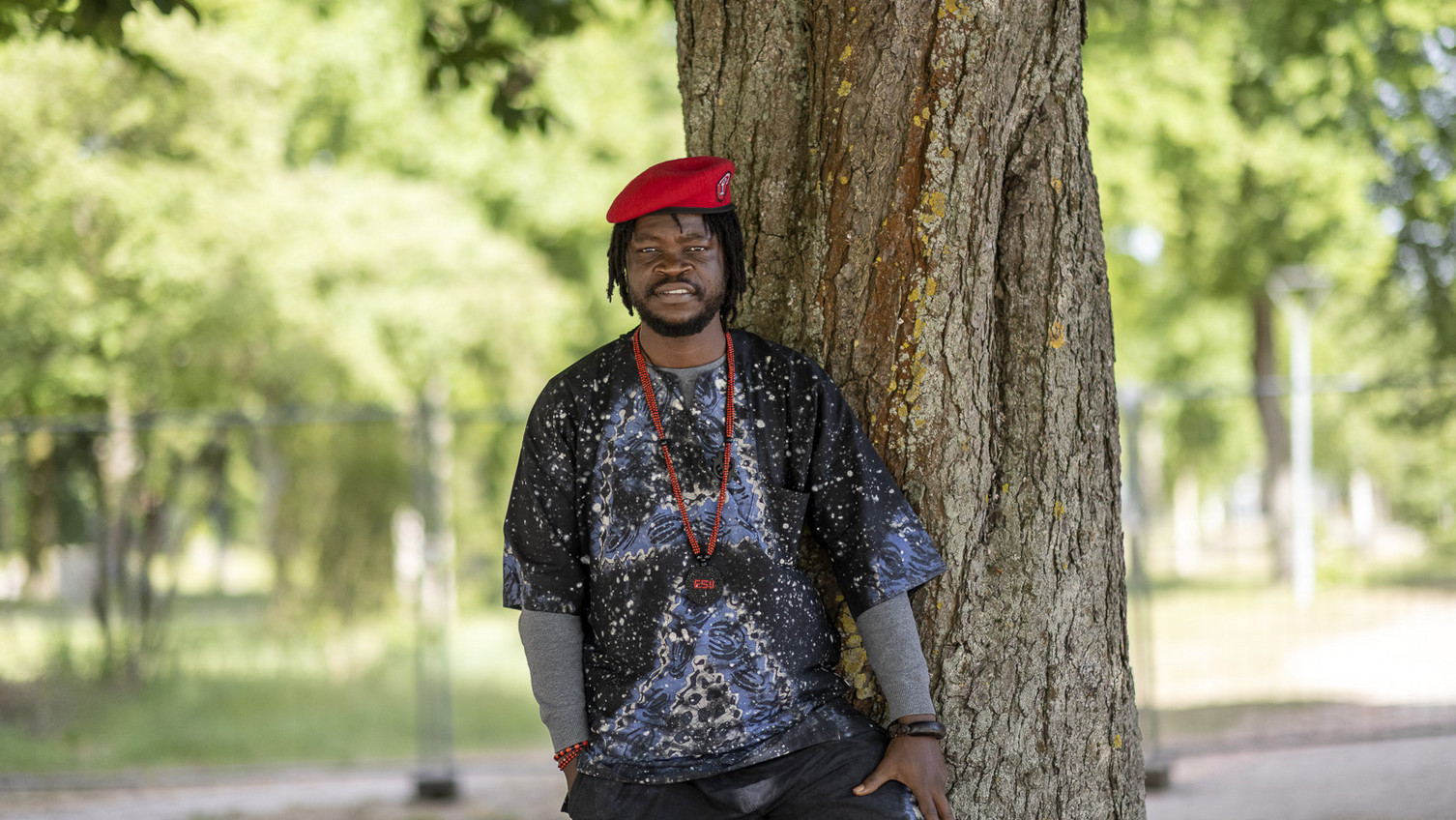Fellow 2025/26
Temitope Fagunwa’s research deals with entangled histories resulting from the transatlantic slave trade and migration. His focus lies on African diaspora studies, cultural legacies, and the historical experiences of African communities in the Americas and Europe. His PhD “African-Brazilians in the Economy of Lagos, 1861 – 1960” examined the economic roles and cultural integration of African returnees from Brazil in colonial Lagos. With this study he provides a new perspective on the impact of the Atlantic slavery on the construction of a global African cultural identity on both sides of the Atlantic. His current research is dedicated to another entangled history starting from the 8th century with influences up to today: He explores the impact of the African Moors in shaping European cultural and intellectual landscapes, seeking to re-assert their historical significance within African scholarship. In addition to his academic contributions, Fagunwa is an active participant in Pan-African intellectual movements. His interdisciplinary approach bridges history, anthropology, and cultural studies, fostering a broader understanding of Africa’s interconnected past with the global world.
Abstract
Revisiting and Asserting the Place of the Cultural Legacies of the African Moors in Western Europe
The culture of the African Moors was hybridized by a strong Arab influence. However, there are also elements of African culture in the ways of life that need to be explored. By examining the Moors' family structures, food, poetry, architecture, political system and other African-inspired cultural elements, my research demonstrates the continuing influence of the African Moors in contemporary Western Europe.
This study sets out to unravel the cultural impacts and legacies of the African Moors in Europe. Despite the flourishing momentum in African studies, historical experiences of Africans in Europe remain a desideratum. The Moorish presence began in the 8th century with the occupation of what is now Andalusia by the Berber general Tariq ibn-Ziyad and spread from there across Europe. From a purely etymological point of view, it is disputed exactly where the name Moors derives from. The group referred to as Moors was also repeatedly re-identified, not least after their expulsion from Spain following the Granada War of 1492, which lead to a division between white and black moors. The culture of the African Moors was hybridised with a major Arabic influence, there was however in existence adequate elements of African culture in the overall modus vivendi of the people. By interrogating the family composition, foods, poetry, architecture, political system, and other African inspired cultural elements of the Moors, this study will attempt to unravel the lingering state of the influence of the Moors in contemporary Western Europe. Concretely, a major focus will be directed at Western European countries such as Spain, France, Germany, and Portugal. My main research questions are: What is the place of African indigenous cultural elements in the overall scope of the Moorish civilization? To what extent did African Moors influence contemporary European culture? How is contemporary Western Europe relating with the historicity of the medieval presence of the African Moors?
Education
2023 PhD History and International Studies, Federal University in Ilorin, Kwara State, Nigeria
2015 MA History, University of Ibadan, Oyo, Nigeria
2011 BA History and International Studies, Osun State University, Osogbo, Nigeria
Most Recent Academic Position
Lecturer, Osun State University
Most Recent Publications
“State Construction and Representation of the African-Brazilian Identity in Colonial Lagos.” Entremons: UPF Journal of World History 14 (2023): 76–107.
with Elugbaju, Ayowole S. “The Upsurge of Religious Intolerance in Southwestern Nigeria: Whither Yoruba Cultural Values?” African Identities 22, no. 4 (2023): 1040–56.
“Ayodele Awojobi as a Scholar-Activist: An Assessment of the Historical Mission of Intellectuals Towards an African Revolution.” The Thinker 90, no. 1 (2022): 23–38.


